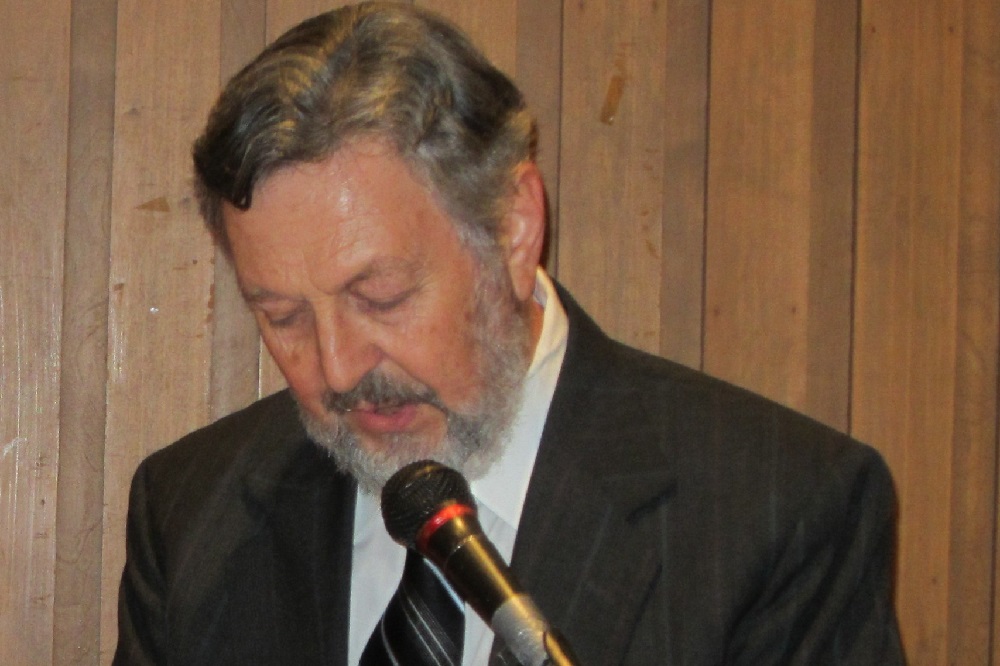Rachel’s Law
Suicide bombers aren’t the only weapon being used by jihadists in their war with Western civilization. By exploiting the free world’s laws on libel, they have succeeded in intimidating writers who expose their terrorist activities. One of the most powerful weapons Islamists have is the threat to use the courts to silence those who get in their way. That’s why a recent action by New York Gov. David Patterson is so significant. On April 30th, he signed into law the Libel Terrorism Protection Act, a major step forward in protecting the First Amendment rights of persons who report factually about terrorism. Referred to as “Rachel’s Law” and named after Dr. Rachel Ehrenfeld, a U.S. citizen and director of the New York-based American Center for Democracy, the Libel Terrorism Protection Act now provides immunity to authors who are successfully sued for defamation in countries that do not have the same free-speech rights that are guaranteed by our Constitution.
Dr. Ehrenfeld is an Israeli-American terrorism scholar and internationally recognized counterterrorism expert. In her 2003 book “Funding Evil: How Terrorism Is Financed and How to Stop It,” which was neither published nor marketed in Britain, she identified Saudi billionaire Khalid Salim bin Mahfouz, banker to the Saudi royal family and one of the world’s richest men, as a leading terrorism financier in the years preceding the attacks of 9/11. Citing government documents as evidence for these particulars, she noted that as far back as 1996, French, British and US intelligence believed bin Mahfouz had erected a banking system to benefit Osama bin Laden and argued that bin Mahfouz’s Muwafaq (Blessed Relief) Foundation was really a front for several other terror groups including Makhtab al-Khidamat, al Qaeda, Hamas and Abu-Sayyaf. The Foundation was headed by Yassin al-Qadi who was later designated as an international terrorist by the State and Treasury Departments.
Bin Mahfouz sued Ehrenfeld for libel in Britain and on May 5, 2005, British High Court Justice Sir David Eady ruled that Ehrenfeld had to apologize to bin Mahfouz, pay him more than $225,000 in damages and destroy copies of her book. The British court accepted jurisdiction for the case against Ehrenberg on the tenuous grounds that twenty-three copies of her book had been bought in the UK via the internet and because ABC News had posted one chapter of the book on its website which could be accessed in Britain.
Unlike America, Britain has no First Amendment rights to protect free speech or a free press. British libel law places the burden of proof on defendants (rather than on plaintiffs, as in America). Therefore, damaging statements are presumed to be false unless and until they are proved to be true. As a result, non-British “libel tourists” like bin Mahfouz use British courts to file libel lawsuits to effectively silence their critics in Britain and around the world to limit public debate about Islamic terrorism. This tactic has served bin Mahfouz well. He has personally commenced (or threatened to commence) at least thirty law suits in Britain. His web site lists successful actions against three other books: “Reaping the Whirlwind: The Taliban Movement in Afghanistan,” “Forbidden Truth: U.S.-Taliban Secret Oil Diplomacy and The Failed Hunt for Bin Laden,” and “Alms for Jihad: Charity and Terrorism in the Islamic World” – the latter representing a particularly odious case.
Cambridge University Press (CUP) is the oldest publishing house in the world printing its first book over 420 years ago. Last year, the company melted before a Mahfouz libel suit by ordering the destruction of all copies of the 2006 book “Alms for Jihad” written by retired US State Department employee J. Millard Burr and Robert O. Collins (professor emeritus of history at the University of California), asked libraries worldwide to take it off their shelves, and reportedly paid Mahfouz a large financial settlement. According to the British newspaper, The Guardian, even Random House (UK) is considering dropping plans to publish Craig Unger’s US bestseller, “House of Bush, House of Saud” for fear of being sued for libel.
In response to the bin Mahfouz judgment, Ehrenfeld countersued for a declaratory judgment in New York, asking the federal court to rule that the British judgment was unenforceable in New York (meaning, among other things, that her assets could not be seized) because British libel law contravened her First Amendment rights. Mahfouz argued that Dr. Ehrenfeld’s case against him should be dismissed because the New York court did not have jurisdiction over him. In the end, the New York Court of Appeals agreed with bin Mahfouz, but suggested that the state legislature could (read: should) change the law. On May 1, 2008, it did. The “Libel Terrorism Protection Act,” or “Rachel’s Law” was signed into law permitting New York courts to exercise jurisdiction over non-residents like bin Mahfouz. The bill empowers New York courts to assert jurisdiction over anyone who obtains a foreign libel judgment against a New York publisher or writer and limits enforcement only to those judgments that satisfy “the freedom of speech and press protections guaranteed by both the United States and New York Constitutions.”
In effect, “Rachel’s Law” (as it is now being called) has given Ehrenfeld and other writers, journalists, authors, researchers and the press who have been successfully sued for libel in foreign courts the right to obtain a declaration in the US that they are protected under American law. The new law insures that critical research on subjects as important as Islamic terrorism, its financiers and global radical Muslim organizations like al Qaeda and Hamas cannot be blocked by foreign courts. It declares that overseas defamation judgments are unenforceable in New York courts unless the foreign defamation laws provide the same guarantees as the US Constitution (which they don’t). This law may effectively render British libel judgments unenforceable in New York.
Rachel’s Law is especially significant given the wealth of books now being produced in America on this subject. This spring, Encounter Books published “Willful Blindness: a Memoir of the Jihad” by Andrew McCarthy, who helped prosecute the “blind sheik” Omar Abdel-Rahman and other jihadists. Roger Kimball, writing in the NY Sun noted that he had “received a message from someone who helps distribute (such) books in Britain. The message read: “Can you please let us know if there are any references to Saudis and terrorist[s] in the book. We are just concerned that this book could potentially create libel lawsuits as it could offend Saudis living in England …” The very threat of legal action has terrified the publishing world.
In the internet era where virtually all forms of publication are available worldwide, non-British libel tourists like bin Mahfouz who seek to silence American authors for statements or books on Islamic terrorism published in the US seem to have found a useful legal vehicle in British courts. To counteract the dampening effect of these libel actions, Senators Joseph Lieberman and Arlen Specter have introduced federal legislation that would, in essence, extend “Rachel’s Law” protections to residents of all fifty states. Called the Free Speech Protection Act of 2008, this new law will enable U.S. authors to counter-sue foreign libel plaintiffs who obtained judgments against them in foreign courts, have their litigation costs covered, and obtain triple damages if those foreign libel plaintiffs can be shown to have engaged in intentional schemes to suppress a writer’s First Amendment rights.
If enacted, the Free Speech Protection Act of 2008 could have a significant deterrent value by discouraging libel tourists from launching their actions in the first place. Among other advantages, it would permit extensive examinations of discovery in US courts against such persons which would force them to open their finances to scrutiny, something most, if not all, would be averse to do. As Sam Abady and Harvey Silverglate wrote in the New York Post in the wake of Rachel’s Law being passed: “Americans certainly differ about how to fight terrorism, but (they) can all agree that we can’t protect our way of life without a free press………The ability of our journalists, authors and press to expose . . . the truth is the most important weapon we have in the War on Terror.”


